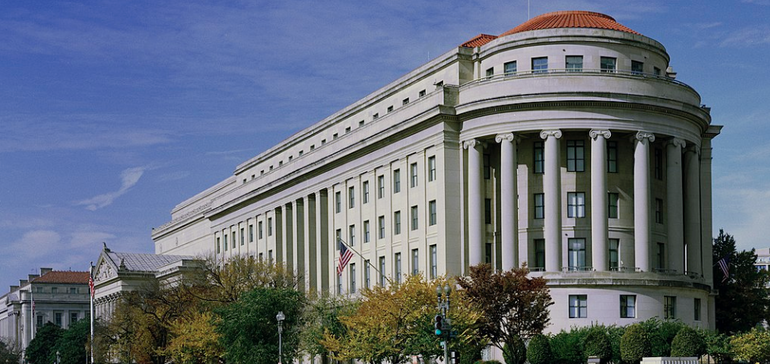
Pharma under the microscope as FTC considers new ways to review acquisitions
Drugmaker acquisitions of all sizes could receive closer scrutiny in the future if the Federal Trade Commission follows the advice of experts who spoke at a two-day agency meeting on market concentration and anticompetitive conduct.
The experts, mostly economists and other antitrust regulators, warned that some drugmakers have gained unfair market power due to the breadth of their product portfolios, allowing them to negotiate for preferred or even exclusive status on insurers’ coverage lists and thereby squeeze out competitors.
Taken together with the FTC’s plans to investigate the practices of pharmacy benefit managers, the meeting signals the Biden administration may take a tougher line on monopolistic practices in an effort to spark competition and target drug pricing.
“Pharmaceutical mergers matter because pharmaceuticals matter,” FTC Commissioner Rebecca Kelly Slaughter, who initiated the agency’s broad review more than a year ago, said in a speech to begin the meeting Tuesday. “Access to medicine is already imperiled by untenable costs. When mergers diminish competition in pharmaceutical markets, the result is higher prices.”
Pharma company leaders did not speak at the meeting. But in public comments submitted to the FTC, the Pharmaceutical Research and Manufacturers of America argued the drug industry hasn’t become more concentrated, continues to innovate and is increasing research and development spending.
Any “additional processes and theories of harm will significantly and profoundly impact not just the ability of experienced pharmaceutical companies to partner up with promising science, but it could also fundamentally alter the ecosystem in which science is discovered and developed in the United States,” the group said in its letter.
The meeting covered a wide range of topics, from assessing the pharmaceutical industry’s market power to the effects of mergers and acquisitions on innovation. But its most immediate impact could come from the experts’ examination of how the FTC and other global authorities analyze and address market concentration in major M&A deals.
Regulators have tended to look only at product-level overlaps between buyers and their targets, and resolved them by forcing the merging companies to sell off some products.
For example, Celgene had to sell the psoriasis drug Otezla to Amgen to get the FTC to clear its $74 billion acquisition by Bristol Myers Squibb because of a competing treatment Bristol Myers was developing. Allergan, meanwhile, sold off a digestive drug called brazikumab so regulators would approve its $63 billion takeout by AbbVie.
Even Roche’s buyout of the gene therapy biotech Spark Therapeutics was slowed by FTC concerns the Swiss drugmaker’s hemophilia drug Hemlibra overlapped with an experimental gene therapy Spark was testing.
Experts argued that, to protect innovation, merging companies should be required to divest the product already being marketed. Robin Feldman, a law professor at the University of California San Francisco and director of its Center for Innovation, noted that of 56 pipeline products sold as part of merger settlements with the FTC, only 36 were approved and fewer had any significant sales.
Divesting an experimental drug to a biotech or spinning it out into a separate entity raises the risk of failure, as those companies could be less experienced in R&D manufacturing or marketing, experts noted. “It’s easier for a merged company to continue to develop a pipeline product,” said Arti Rai, a Duke University law professor and director of its Center for Innovation Policy.
Single-product divestitures also fail to take into account drugmakers’ broader business and the market power that can be gained by having a large number of drugs when negotiating with pharmacy benefit managers, or PBMs.
“It really becomes more important to assess the potential increase in market power from the size and the scope of the overall portfolio,” said Patricia Danzon, a professor of healthcare management at the University of Pennsylvania Wharton School. “These are already large firms with large portfolios, and they already have the potential for tying the rebates on their must-have products and access to some drugs in their portfolio to the ‘preferred’ position” in PBMs’ formularies.
Even serial acquisitions of small one-product biotechs, which typically result in less scrutiny from regulators, can result in a drugmaker amassing market power. “If a monopolist buys 100 startups, the chances are that competition has been restrained,” Feldman said.
How to forecasts whether consolidation will impede competition in the future is a harder question, the experts said. Still, Barak Richman, a Duke law and business administration professor, said regulators have been able to make similar predictions with hospital mergers based on economic models that have been accepted by the courts.
Experts and regulators at the meeting also expressed concern about protecting innovation as drugmakers acquire small biotechs. While the value of these drugmakers is boosted by the potential for a buyout or licensing deal, such transactions can become “killer acquisitions” if acquiring companies decide to shelve a biotech’s product because it would jeopardize another medicine they’re developing, too.
Deals can also have knock-on effects for other companies working on the same disease or drug types.
“Protecting innovation will require us to look at both the incentives of the merging firms, as well as the non-merging firms,” said Caroline Holland, an attorney adviser with the FTC. “For example, the incentives of non-merging firms may be relevant if a merger reduces the number of large firms that are the target sales audience for new innovation developed by a pharmaceutical startup.”
“This may affect the availability of capital to those startups,” she added.